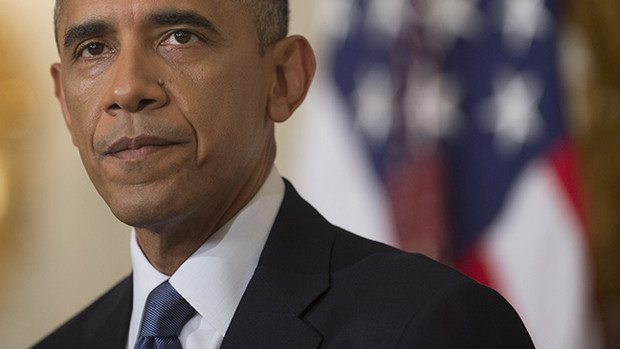 Republican Senate The action between the White House and a Republican Senate could make Moshe Ya�alon�s feud with the Obama administration look like Tiddly-Winks.
Republican Senate The action between the White House and a Republican Senate could make Moshe Ya�alon�s feud with the Obama administration look like Tiddly-Winks.The warning by Israeli Finance Minister Yair Lapid that there is a crisis between Israel and the Americans may well be true. He�s alarmed at the refusal�of the top tier of the Obama foreign policy team to receive Defense Minister Moshe Ya�alon. But there�s a much bigger crisis brewing for the administration over Middle East policy. It�s the rift � wider than I can recall it � between the White House and the Congress. It involves not only Israel but also Iran.
It�s a crisis that, to judge by the latest polling on the congressional election, could shortly get worse. This is because of the possibility � not a certainty � that Americans will give Republicans, the more pro-Israel party, control of the Senate. No wonder President Obama has decided that if he can get a deal with the mullahs, he will, as�reported�by David Sanger of The New York Times, �do everything in his power to avoid letting Congress vote on it.�
That is astonishing enough, given that the Constitution grants Congress fundamental powers on foreign affairs, including that treaties must be ratified by two-thirds of the Senate. Administrations make all sorts of agreements that fall short of being treaties and on which Congress doesn�t vote. They rarely do so with an eye to unraveling the work of the Congress. What President Obama appears to be working toward is gutting sanctions that Congress enacted � by an overwhelming margin.
�Congress will not permit the president to unilaterally unravel Iran sanctions that passed the Senate in a 99 to 0 vote,� is how the Times quotes Senator Mark Kirk, the leading Republican backer of the sanctions, as putting the point. The chairman of the Foreign Relations Committee, Senator Robert Menendez, a Democrat of New Jersey, is quoted as stating any pact �cannot allow Iran to be a threshold nuclear state.�
The Times also quotes the Iranian foreign minister, Mohammad Javad Zarif, as mocking the administration by saying it will have a �harder job� convincing Congress than selling any deal in Iran. That was underscored last year by the Nuclear Weapon Free Iran Act. The measure would have required that were Iran to default on any agreement, sanctions would be restored and even tightened.
As it turned out, the Democratic leadership � and the American Israel Public Affairs Committee � flinched putting the Nuclear Weapons Free Iran Act to a vote. But what�s going to happen if the Republicans gain control of the Senate? By my quick count, two thirds of Menendez-Kirk�s 60 or so co-sponsors � a few short of a veto-proof majority � were Republicans. Theirs is the party that has emerged as the more supportive of a hard line in the Middle East.
It�s less likely that Congress would flinch if the Republicans gain control of the Senate. On the contrary, the Senate will be more likely to assert itself in foreign affairs. So welcome to the constitutional no-man�s land between the White House and the Congress. The action there could make Moshe Ya�alon�s feud with the Obama administration look like Tiddly-Winks.
Trouble between the president and Congress, after all, normally erupts when both the Senate and the House are controlled by one party and the presidency by another. Think Richard Nixon, a Republican who was forced to resign the presidency by a Democratic Congress. Or Ronald Reagan, the nadir of whose presidency came in its final quarter when the Senate was recaptured by the Democrats and issued its report condemning him for the so-called Iran Contra Affair.
It�s not my purpose here to suggest that Ya�alon or anyone else should take lightly a deterioration in relations between Israel and the White House. It is my aim to suggest that what has changed is neither Israel nor the Congress but the Democratic Party, which at its last convention booed a proposal to recognize Jerusalem as the capital of Israel and which handed up, in President Obama, America�s most left-wing president.
Not that the Republicans are immune from ideological struggles, and a big one is being brought to a head by Senator Rand Paul of Kentucky. He was one of the few Republicans who declined to co-sponsor the Nuclear Weapons Free Iran Act. He was just on the cover of Time as the �most interesting man in politics.� He is a long, long way from the presidency he�s seeking. But he would be, in the best sense, a stickler on the Constitution � and hew to a more libertarian line on foreign affairs. He�d be less likely to send our GIs into battle without a war declaration. He�s more likely to let other countries, including Israel, run their own affairs � thus less likely to give allied war ministers, like Moshe Ya�alon, cause for complaint.
By Haaretz
The Iran Project is not responsible for the content of quoted articles.










